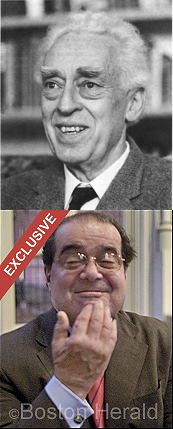Chomsky and the origins of AI research
Melissa Heikkilä, "LeCun: 'Intelligence really is about learning'", Financial Times 1/2/2026:
(The AI pioneer on stepping down from Meta, the limits of large language models — and the launch of his new start-up)
LeCun’s lightbulb moment came as a student at the École Supérieure d’Ingénieurs en Électrotechnique et Électronique in Paris in the 1980s, when he read a book about a debate on nature versus nurture between the linguist Noam Chomsky and Jean Piaget, a psychologist. Chomsky argued that humans have an inbuilt capacity for language, while Piaget said there is some structure but most of it is learnt.
“I’m not gonna make friends saying this . . . ” he tells me, “but I was reading this and I thought everything that Chomsky . . . was saying could not possibly be true, [because] we learn everything. Intelligence really is about learning.”
AI research — or neural networks, as the technology was then called, which loosely mimic how the brain functions — was practically a dead field and considered taboo by the scientific community, after early iterations of the technology failed to impress. But LeCun sought out other researchers studying neural networks and found intellectual “soulmates” in the likes of Geoffrey Hinton, then a faculty member at Carnegie Mellon.
Read the rest of this entry »
